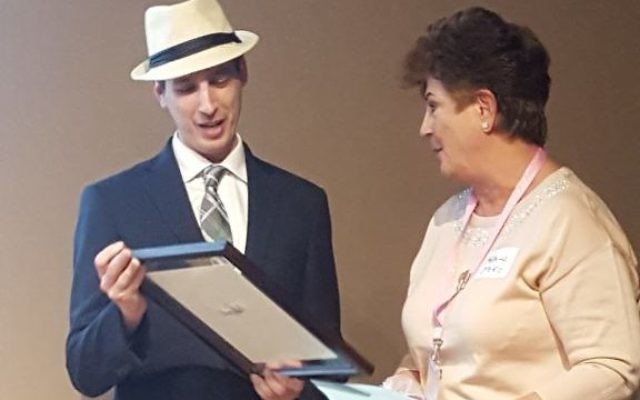Kidney Donations Save Lives Within Jewish Law
Organ donations are a mitzvah, according to Renewal outreach director Rabbi Josh Sturm.

Rabbi Josh Sturm’s job isn’t to ask for money. As the outreach director for New York-based Renewal, a private Jewish organ donation registry, he’s asking for kidneys, and he’s asking you just to think about it.
Rabbi Sturm was in the Atlanta area Sunday afternoon, Oct. 22, to speak at a program, “The Jewish Response to Organ Donation & Transplants,” held at Congregation Beth Shalom and presented by Hadassah Greater Atlanta’s Metulla Group and Beth Shalom’s Sisterhood.
The event was organized to provide information and raise awareness about the need for kidney donors and the work Renewal does to help match people with terminal kidney disease to donors.
Many people wonder whether Jewish law permits organ donation, but Rabbi Sturm and Beth Shalom Rabbi Mark Zimmerman assured the audience that, while halacha says you should not desecrate the body, the act of saving a life supersedes all other laws.
Because of the potential risks, “you’re not obligated,” Rabbi Sturm said, “but how beautiful it is to give a limb to save life.”
With 96,000 people on the national kidney transplant list, the need for kidney donors is serious. In Renewal’s 11 years, and mostly the past six, the organization has been involved in arranging 400 kidney transplants, including 67 last year.
Rabbi Sturm said Renewal focuses only on kidneys because matching is relatively easy (recipients and donors need only share blood and certain tissue types) and the transplant surgery’s success rate is high.
People with kidney failure must often undergo unpleasant and expensive dialysis treatments to do the job of cleansing the blood that healthy kidneys would do.
“Kidney failure is a terminal illness that has a cure,” Rabbi Sturm said. “A relatively healthy person can save a life. It’s an amazing thing.”
While most kidney donors are between the ages of 18 and 70, overall health, rather than age, is the main consideration. A potential donor receives a complete physical evaluation as one of the first steps in determining eligibility.
If a donor is able and truly willing — Rabbi Sturm emphasized that there is never any pressure and that a potential donor can back out for any reason up until the last minute — the kidney is removed laparoscopically with a small incision.
The donor’s recovery typically requires a few days in the hospital and several weeks of rest.
Rabbi Sturm said donors never incur any financial costs. The recipient’s insurance pays the medical bills. If the donation is arranged through Renewal, the organization picks up all other incidental costs, including any travel or lost work wages.
Bringing the discussion home, Atlanta resident Nancy Rose shared her story of worsening kidney failure producing an urgent need for a donor. Rose undergoes a three-hour dialysis treatment three times a week, but she is hopeful that a recently identified potential donor will be the match she has been waiting for.
Shai Robkin shared his decision to donate a kidney. Motivated by the knowledge that, past age 60, “time was ticking” on his ability to help anyone else and that live donors are usually best, he donated a kidney in December with surgery at Emory University Hospital. At the time, he didn’t know the recipient.
Raye Lynn Banks’ heartbreaking stories about the loss of her children underscored Rabbi Sturm’s appeal for people to consider organ donation.
When her son died in 1993, she was in too much shock to immediately agree when the hospital called to ask the family to donate his organs. Two years later, her daughter died from liver disease caused by hepatitis before a transplant could save her life.
Now Banks, who volunteers with the Link Counseling Center, said her children’s lives are making a difference because she is telling their stories.
If organ donation is “something you’re thinking about,” she said, “talk to someone and share your decision with your family.”



comments